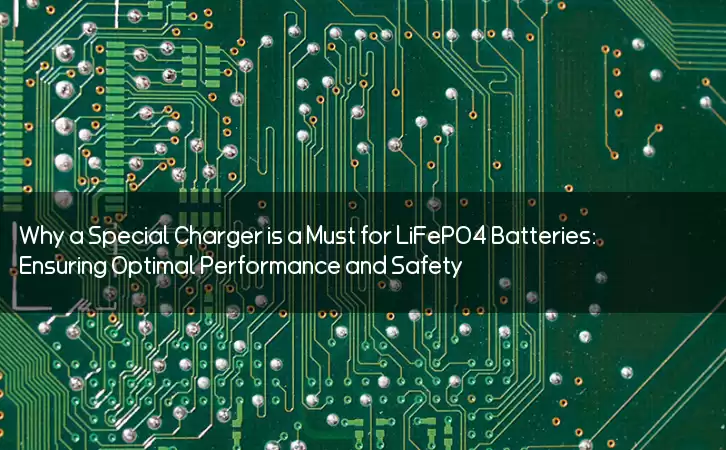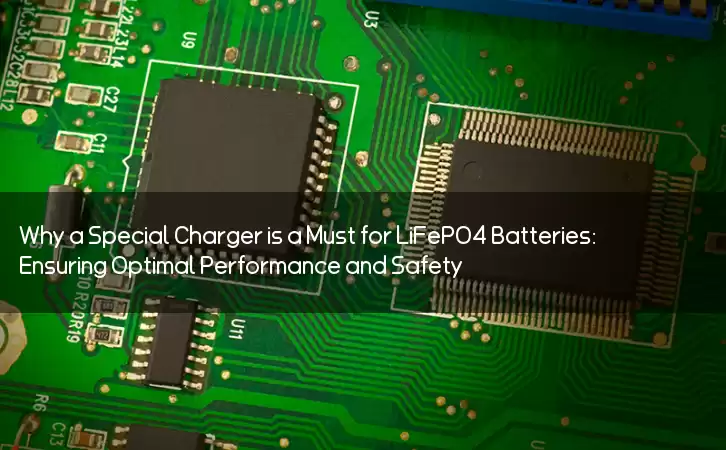Information Center
Why a Special Charger is a Must for LiFePO4 Batteries: Ensuring Optimal Performance and Safety
Published:2023-08-18 20:32:28 Author:Green WCND Views:64Do LiFePO4 batteries need a special charger?

The emergence of LiFePO4 batteries has revolutionized the world of energy storage. LiFePO4 batteries offer a range of advantages, including their longer lifespan, higher energy density, and lower discharge rates. They have become the battery of choice for many applications, ranging from electric vehicles, renewable energy systems, and even portable devices.

However, there is still much confusion regarding the charging requirements for LiFePO4 batteries. So, Do LiFePO4 batteries need a special charger?
The simple answer is yes, LiFePO4 batteries do require a special charger. Unlike conventional lead-acid batteries, LiFePO4 batteries have a different charging process, which requires a specific charging algorithm to ensure their longevity and optimal performance.
One of the primary reasons for using a special charger for LiFePO4 batteries is their charging voltage. LiFePO4 batteries operate at a nominal voltage of 3.2V/cell, which is lower than the charging voltage of lead-acid batteries that operate at 2.4V/cell. A conventional charger designed for lead-acid batteries will not be able to charge LiFePO4 batteries effectively.
Additionally, LiFePO4 batteries are sensitive to overcharging, which can cause permanent damage and a shortened lifespan. A specialized charger designed for LiFePO4 batteries will ensure that the charging current is maintained within the specified range, and the charging voltage is closely monitored.
There are also some other factors that highlight the need for a specialized charger for LiFePO4 batteries. For example, the charging profile of LiFePO4 batteries is different from other battery technologies. They require a constant current – constant voltage charge (CC-CV) regimen, where the charge current stays constant until the cell reaches a certain voltage threshold. After this, the charger switches to a constant voltage mode, where the voltage stays constant, and the charge current tapers off until it reaches a certain level.
Using a specialized charger means that the battery will reach its full capacity, reducing the risk of undercharging and overcharging. Furthermore, specialized chargers will include safety features such as short-circuit protection, overvoltage protection, and over-current protection, which are critical for avoiding potential safety hazards.
In conclusion, LiFePO4 batteries do require a special charger to operate optimally and give maximum performance. Charging a LiFePO4 battery with a conventional charger can lead to permanent damage and a significantly reduced lifespan. Specialized chargers for LiFePO4 batteries ensure that they are charged optimally, with precision, and with safety measures in place. It is essential to take note that a specialized charger can be more expensive than the standard one, but when it comes to safety and performance, it is worth the investment.
Power Adapter Design and Customization Guide for Portable Electric KettlesI. Common Design Types for Portable Electric Kettle Power AdaptersPortable electric ke···
I. Common Design Types of Power Adapters External Independent Type (Most Common) Design: A standalone adapter (e.g., "black brick") connected to the p···
Handheld Vacuum Cleaner Power Adapter Selection GuideIntroductionHandheld vacuum cleaners have become a mainstream tool for household cleaning due to their port···
Drill Power Adapter Selection Guide.drill-container { font-family: Arial, sans-serif; line-height: 1.6; max-width: 800px; margin: 0 auto; padding: 20px; } .dril···





